Today will be my son's second attempt to detox for a life long habit. Of course being an addict takes the person multiple times before they get it right because IT'S VERY HARD to get off a drug that you've been dependent on for years. However I believe a place that provides ...
About Texas Health Seay Behavioral Health Hospital Plano
The detoxification process is often the first step in addiction recovery and involves removing addictive substances from the body. Nurses and physicians are experienced in drug, alcohol, and opioid addiction. They oversee detox to suit your exact situation. An individualized treatment plan will be created that allows for the appropriate pace of detox to take place within a controlled and supportive environment. Detoxing in a medically monitored environment can lower the risk of relapse and help clients achieve long-term recovery.
The inpatient program provides 24 hour monitoring and treatment for individuals with acute behavioral health conditions in a safe, supportive, and client-focused environment. Inpatient allows for accommodations, meals, and other daily needs to be taken care of while mental and physical stabilization takes place. During this time, individual and group therapy are commonly practiced. Psychoeducational groups, life skills, and healthy coping mechanisms may also be introduced.
Partial hospitalization is a step down from inpatient treatment. It serves as a highly structured outpatient program for those who are not at the point where they need to stay in a hospital. It’s a stepping stone between inpatient and outpatient treatment programs. Dedicated, age-specific programs are available for adolescents and adults.
Adolescents who do not need to stay in the hospital but who still require a highly structured outpatient program often need more support than what is available in traditional outpatient settings. The day program for adolescents allows for a safe and therapeutic environment where healing can occur. Each evening you’ll return to their homes and come back at the next scheduled interval.
Texas Health Seay Behavioral Health Hospital accepts most commercial insurance plans, along with Medicaid and Medicare. Out of network benefits may vary so verify your coverage with your individual provider.
Latest Reviews
Thank you, Katie - Texas Health
Thank you, Katie - Texas Health
Thank you, Katie - Texas Health
Rehab Score
Gallery
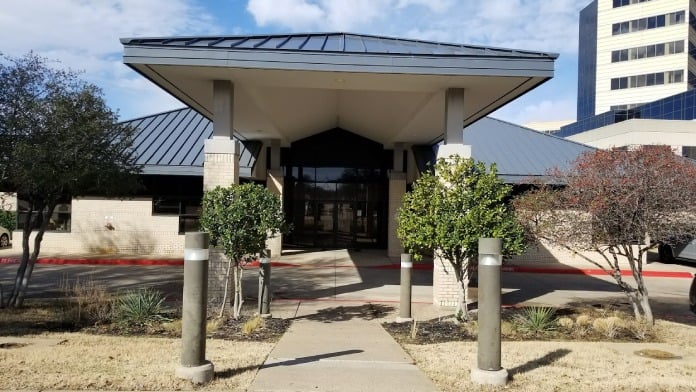
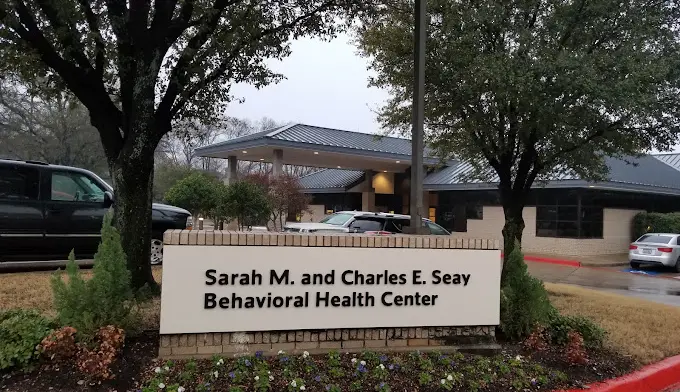
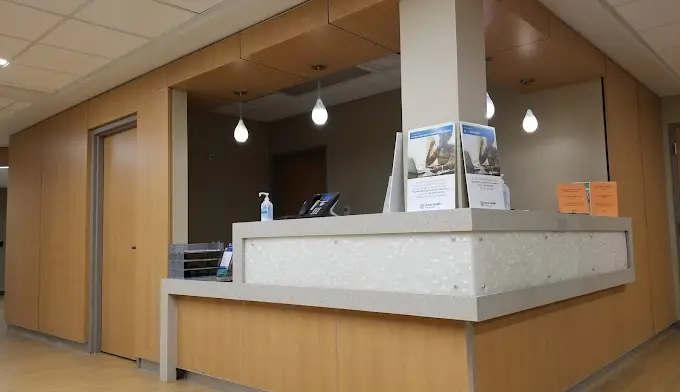
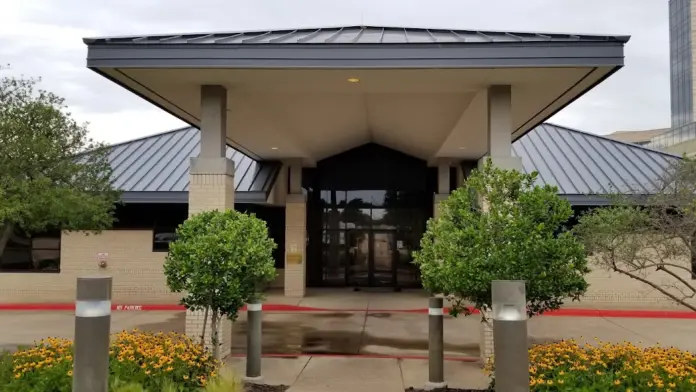
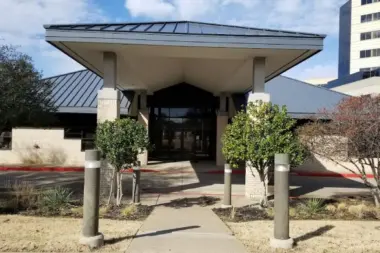
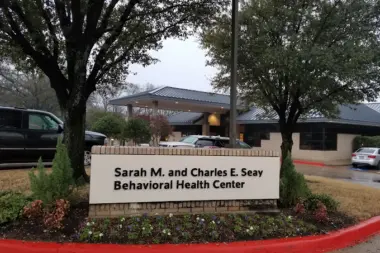
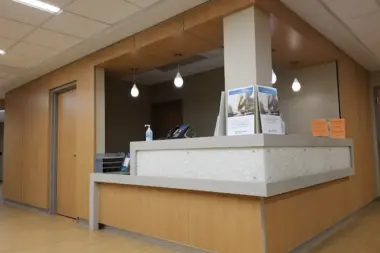
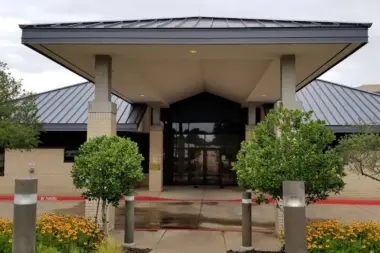
Accepted Insurance

Other Forms of Payment
Private insurance refers to any kind of healthcare coverage that isn't from the state or federal government. This includes individual and family plans offered by an employer or purchased from the Insurance Marketplace. Every plan will have different requirements and out of pocket costs so be sure to get the full details before you start treatment.
Self-pay involves paying for treatment out of your own pocket. You can use savings or credit, get a personal loan, or receive help from family and friends to fund your treatment. If you don't have insurance or your insurance plan doesn't cover a specific program, self-pay can help ensure you still get the care you need.
Medicare is a federal program that provides health insurance for those 65 and older. It also serves people under 65 with chronic and disabling health challenges. To use Medicare for addiction treatment you need to find a program that accepts Medicare and is in network with your plan. Out of pocket costs and preauthorization requirements vary, so always check with your provider.
Addiction Treatments
Levels of Care
After completing some form of inpatient care, many clients transition or step down to an outpatient rehab, while some choose to transition from detox directly into outpatient care. High-intensity outpatient programming, including partial hospitalization (PHP) and intensive outpatient (IOP) is widely available for clients in early recovery, those leaving detox, and those at an elevated relapse risk. Clients in outpatient care generally engage in robust addiction counseling and recovery education, and some also receive medication assisted treatment (MAT).
The adult inpatient program at Texas Health Behavioral Health provides 24-hour monitoring, treatment, and stabilization for adults with acute behavioral health conditions in a safe, supportive, and therapeutic environment. Patients are housed in facilities created just for them, which foster personalized attention for each patient. Customized treatment plans address next steps and ongoing recovery needs and are unique to each individual patient. Adolescents need care tailored for them and their unique needs. The Texas Health Behavioral Health programs for adolescents address the growing needs of behavioral and mental health care for adolescents with psychiatric conditions, or with behavioral or emotional difficulties. Care plans are tailored to the individual’s unique needs and are offered in a variety of settings. Specializing in adolescents ages 12 to 17, the inpatient adolescent program provides crisis stabilization and symptom reduction in a safe, structured environment.
For adults struggling with substance abuse and addiction, going through the detox process in a center equipped to provide for their specialized needs is key. Texas Health Behavioral Health utilizes evidence-based care to help patients take the first step in overcoming addiction. Inpatient adult detoxification provides a medically safe and emotionally supported detox led by specially trained physicians on the staff at Texas Health Behavioral Health facilities.
The Texas Health Behavioral Health Intensive Outpatient Programs are for individuals needing a structured therapy program that offers counseling and education in a group setting. Clinicians work with physicians on the medical staff to provide daily support and a safe place to talk, learn problem-solving skills and practice stress-reduction techniques. Texas Health Behavioral Health also offers the following Specialized Intensive Outpatient Programs: Women The Texas Health Behavioral Health Program for Women is an outpatient program that addresses the treatment of depression in women, including postpartum depression, loss of a child (including miscarriage) and hormone-related depression. The Women’s Outpatient Program addresses the physical, emotional, spiritual and interpersonal needs of adult women who face emotional difficulties and stressful life situations. The young adult program addresses the age-specific issues of young adults ages 18-25. The program is geared toward the behavioral health challenges that the young adult faces including: self-identity, graduation, independence, college pressures, change in family dynamics, introduction to work force, peer pressures, healthy relationships and alcohol or drug issues.
At certain points in the recovery process, it's important to have support available 24/7. 24-hour clinical care offers a safe environment in which to recover from drug or alcohol addiction in peace, knowing medical detox and other treatment will happen with professionals on hand.
Completing a drug or alcohol rehab program shouldn’t spell the end of substance abuse treatment. Aftercare involves making a sustainable plan for recovery, including ongoing support. This can include sober living arrangements like halfway houses, career counseling, and setting a patient up with community programs like Alcoholics Anonymous (AA) or Narcotics Anonymous (NA). Aftercare support groups are a way for patients to meet others in recovery and get support for their recovery journey. Meetings are held Saturday mornings at 11am.
Treatments
Many of those suffering from addiction also suffer from mental or emotional illnesses like schizophrenia, bipolar disorder, depression, or anxiety disorders. Rehab and other substance abuse facilities treating those with a dual diagnosis or co-occurring disorder administer psychiatric treatment to address the person's mental health issue in addition to drug and alcohol rehabilitation.
A combined mental health and substance abuse rehab has the staff and resources available to handle individuals with both mental health and substance abuse issues. It can be challenging to determine where a specific symptom stems from (a mental health issue or an issue related to substance abuse), so mental health and substance abuse professionals are helpful in detangling symptoms and keeping treatment on track.
Programs
Adult rehab programs include therapies tailored to each client's specific needs, goals, and recovery progress. They are tailored to the specific challenges adult clients may face, including family and work pressures and commitments. From inpatient and residential treatment to various levels of outpatient services, there are many options available. Some facilities also help adults work through co-occurring conditions, like anxiety, that can accompany addiction.
Young adulthood can be an exciting, yet difficult, time of transition. Individuals in their late teens to mid-20s face unique stressors related to school, jobs, families, and social circles, which can lead to a rise in substance use. Rehab centers with dedicated young adult programs will include activities and amenities that cater to this age group, with an emphasis on specialized counseling, peer socialization, and ongoing aftercare.
Clinical Services
Cognitive Behavioral Therapy (CBT) is a therapy modality that focuses on the relationship between one's thoughts, feelings, and behaviors. It is used to establish and allow for healthy responses to thoughts and feelings (instead of unhealthy responses, like using drugs or alcohol). CBT has been proven effective for recovering addicts of all kinds, and is used to strengthen a patient's own self-awareness and ability to self-regulate. CBT allows individuals to monitor their own emotional state, become more adept at communicating with others, and manage stress without needing to engage in substance abuse.
For adults struggling with anorexia or bulimia, Texas Health Behavioral Health offers specialized care through its eating disorders program. Eating disorders are complex illnesses, and every individual presents with different symptoms, causes, physical and emotional issues. For that reason, treatment is tailored to each individual patient. Treatment is provided within a faith-based, not-for-profit hospital system, allowing access to advanced medical care provided by clinicians and physicians on the medial staff with experience in eating disorders. The hospital-based program allows for structure and support in the early stages of recovery. It also provides safety and supervision necessary for refeeding. Inpatient – The highest level of care offered, inpatient treatment for eating disorders addresses the medical complications that can result from these illnesses. Patients receive 24-hour care and are closely monitored during this early stage of recovery. Partial Hospitalization – Once medically stable, patients can step down to the partial hospital program, where they will eat all of their meals on the unit and attend all groups, but will spend the night at home.
Research clearly demonstrates that recovery is far more successful and sustainable when loved ones like family members participate in rehab and substance abuse treatment. Genetic factors may be at play when it comes to drug and alcohol addiction, as well as mental health issues. Family dynamics often play a critical role in addiction triggers, and if properly educated, family members can be a strong source of support when it comes to rehabilitation.
Group therapy is any therapeutic work that happens in a group (not one-on-one). There are a number of different group therapy modalities, including support groups, experiential therapy, psycho-education, and more. Group therapy involves treatment as well as processing interaction between group members.
In individual therapy, a patient meets one-on-one with a trained psychologist or counselor. Therapy is a pivotal part of effective substance abuse treatment, as it often covers root causes of addiction, including challenges faced by the patient in their social, family, and work/school life.
Life skills trainings involve all the skills a person must have in order to function successfully in the world. These include time management, career guidance, money management, and effective communication. Truly successful addiction recovery is based on the ability to not only live substance-free, but to thrive. Life skills teaches the practical necessities of functioning in society, which sets clients up for success in life, and therefore sobriety.
Nutrition therapy, aka medical nutrition therapy (MNT), is a way of treating physical, emotional, and medical conditions through diet. Specific dietary plans are designed by professional nutritionists or registered dietitians, and patients follow them in order to positively affect their physical and mental health.
Trauma therapy addresses traumatic incidents from a client's past that are likely affecting their present-day experience. Trauma is often one of the primary triggers and potential causes of addiction, and can stem from child sexual abuse, domestic violence, having a parent with a mental illness, losing one or both parents at a young age, teenage or adult sexual assault, or any number of other factors. The purpose of trauma therapy is to allow a patient to process trauma and move through and past it, with the help of trained and compassionate mental health professionals.
Amenities
-
Private Setting
Staff & Accreditations
Staff

Barclay E Berdan
CEO

Rick McWhorter
Senior Executive VP & CFO

Winjie Tang Miao
Senior Executive VP & COO
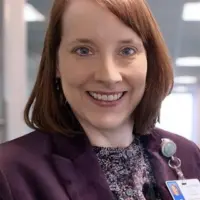
Carla Dawson
Chief People Officer

Shawn Parsley, DO
President & COO

Andrew Masica, M.D., M.S.C.I., SFHM
CMO

Mary Robinson, Ph.D., R.N., NEA-BC
Chief Nursing Executive
Accreditations

The Joint Commission, formerly known as JCAHO, is a nonprofit organization that accredits rehab organizations and programs. Founded in 1951, the Joint Commision's mission is to improve the quality of patient care and demonstrating the quality of patient care.
Joint Commission Accreditation: Yes
Contact Information
6110 West Parker Road
Plano TX, 75093










